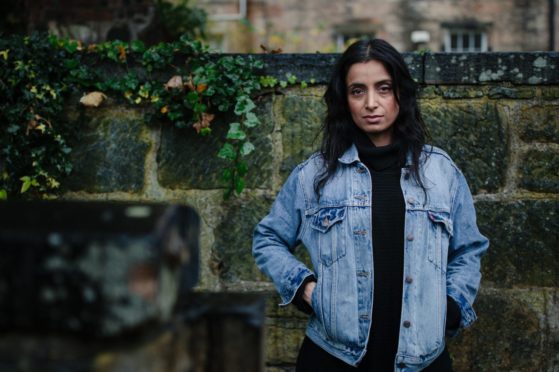
Filmmaker Deeyah Khan remembers the moment that won Donald Trump the presidency.
“It was when he said the people of white working-class America were forgotten, but that they were forgotten no more,” said the Emmy Award-winning filmmaker.
She knows the moment he might have lost it, too – when black American George Floyd died with a white American police officer’s knee on his neck. “That was the tipping point. If you’d asked me last year, I would have 100% said Trump would win the election again this year,” she said. “But that was before Covid, and it was before George Floyd. He is going to have a huge effect on the outcome of this election, without any question. I just wish he could know that it’s happening.”
As an acclaimed documentary maker who has spent years exploring the roots of the racial hatred and fundamentalist division that has set America alight, Deeyah is well placed to comment on the state of the United States.
Her work includes Banaz: A Love Story, about the honour killing of a British Kurdish woman, and White Right: Meeting The Enemy, in which she met some of the most prominent Neo-Nazis in the US. Both films won Emmys.
Now she has turned her camera on the presidency of Donald Trump and its impact on the lives of Muslim people around America, as well as what she sees as the effect of the radicalising rhetoric that has emanated from the man in the White House since 2017.
Her latest ITV film, Muslim In Trump’s America, looks at the roots of societal corrosion and the rise in right-wing zealotry, from the perspectives of both the country’s Muslim community and those opposed to their presence in the USA.
She said: “Muslims being treated poorly or being discriminated against isn’t something that’s new. It’s become commonplace since 9/11. I wanted to explore that and specifically look at Trump, because this anti-Muslim sentiment is everywhere, it’s has become pronounced in the UK, the US, across Europe.
“What is different in America is how it is so stark, so clear, since his presidency. He has articulated something people might think but wouldn’t say. I’m looking at the consequences of that, because politics have real life implications.
“What is it like for a child to hear their own president talk about them as an enemy within?”
Deeyah meets victims of white surpremacists’ violence – from Rais Bhuiyan, the shopkeeper who survived being shot in the face by a supremacist gang member in Texas, to Minnesota Congresswoman Ilhan Omar, the first refugee elected to Congress and a regular target for Trump’s rhetoric. Last year, she was one of four Congresswomen the president told to “go back” to their own countries.
She also met with the family of Patrick Stein, who is serving 30 years for a plot to blow up a complex housing Somali refugees. Stein’s sister maintains he was effectively groomed by Trump.
Deeyah, who lives in Scotland, said: “It was terrifying to hear it confirmed that for people like Patrick and many others who hold this level of intensity against Muslims, how Donald Trump has been a profound part of their radicalisation into extremism. Just like for Jihadi kids, there is a process.
“Trump is clever, he can speak to people’s brokenness and fear. He appeals to that ugly side of us and translates it into votes. It’s terrifying.”
With Democratic candidate Joe Biden ahead in the polls in the run up to Tuesday’s election, Deeyah still foresees profound difficulties ahead for American society, even if he and Kamala Harris oust the incumbent of 1600 Pennsylvania Avenue.
She said: “For the last 15 years I have seen how the country has become so deeply divided. I find it an uncomfortable and unpleasant place to be. I have always liked visiting in the past, but this time I was counting down the days until I finished filming, and could pack up and leave. I just didn’t want to be there. People are hardened and in their corners.
“It’s not just Democrats and Republicans not being able to make things work, but the public too. I know families that have been divided because someone discovered their parents watch Fox News and voted Trump. There’s a distance in people which is increasing. It’s not too late, but the damage is really severe. The work that Biden and Harris are up for is really difficult. But even if Trump goes away his people won’t, not until this is addressed.
“There is a huge proportion of white working-class Americans who, when they see people like me gaining more rights and space in a society we all share, think this is happening at their expense. The left needs to get better at explaining to people that these problems exist but the immigrant, the Muslim and the black guy you hate so much are in the same boat as you.
“So, rather than direct frustrations towards the guy who is just as screwed as you, direct it at the systems underpinning a society that isn’t able to sustain a dignified and inclusive way of life for its people. The solution to the politics of fear and division is the politics of solidarity.
“We have people like Trump trying to stoke fear and hatred between us. Ultimately it comes down to us. Are we going to fall for that and make that part of our behaviour? Or are we going to try to make it work? Otherwise, where does it end?”
Born and raised in Norway, Deeyah lived in both England and the US before moving to Glasgow several years ago. “I feel the politics in Scotland are more in line with my own,” she said. “There’s a desire to be more inclusive, fairer, promote dignity and rights. Fairness, equality and dignity are an active part of the culture here.”
Deeyah was filming in the US when the death of George Floyd resonated worldwide, prompting Black Lives Matter demonstrations not just in her new homeland of Scotland, but well beyond. It is, she hopes, a seismic moment for world politics.
“This was the point of no return,” she said. “It spilled into our feelings of justice around the world. It activated people. I remember wondering why people didn’t spill into the streets protesting years ago instead of sitting in front of their TVs. Now we’re seeing it. It’s disgusting we had to witness someone taking their last breath to activate people, but maybe that’s what it takes to show us our own inhumanity, show us what we have become.
“What film and stories do is give us a tiny crack where we can each recognise our own humanity in someone else. In that space we understand each other and when we understand each other, we care. And once you do that, something better becomes possible.”
Being Muslim In Trump’s America, 10.45pm tonight, ITV

Enjoy the convenience of having The Sunday Post delivered as a digital ePaper straight to your smartphone, tablet or computer.
Subscribe for only £5.49 a month and enjoy all the benefits of the printed paper as a digital replica.
Subscribe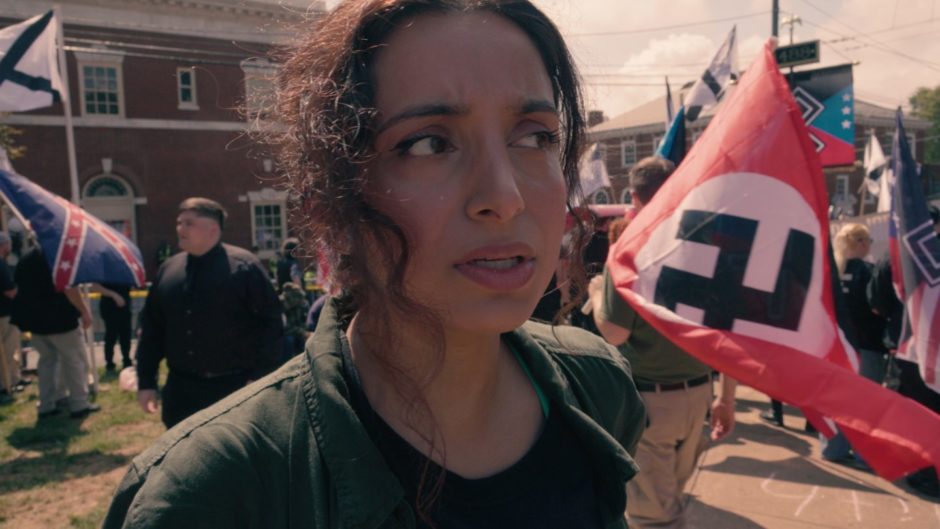 © SYSTEM
© SYSTEM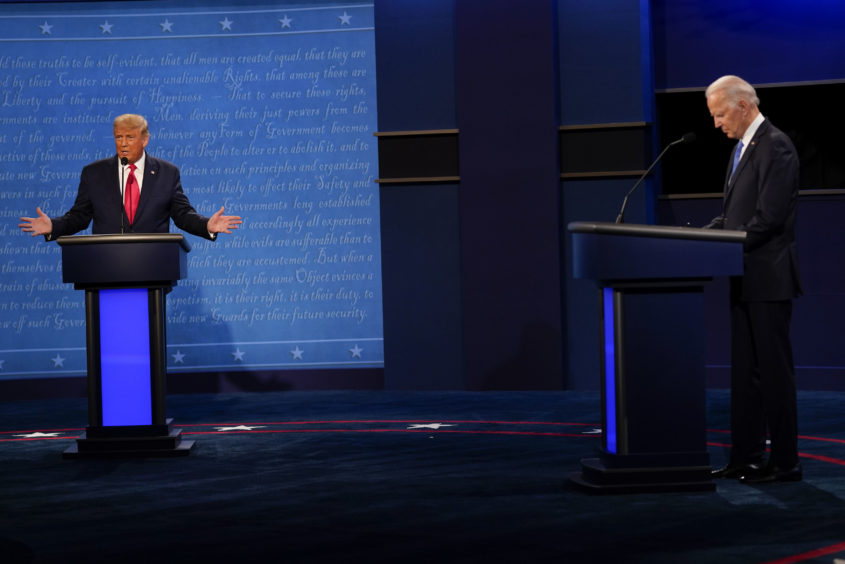 © AP Photo/Julio Cortez
© AP Photo/Julio Cortez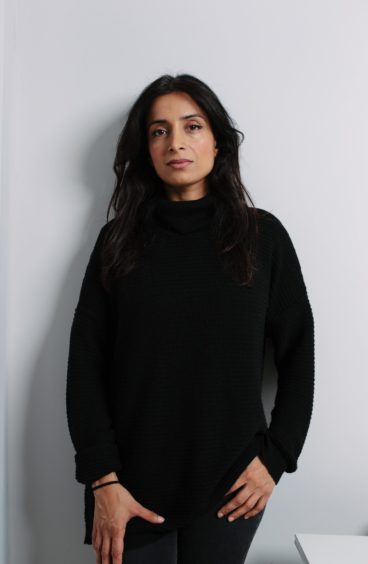 © Andrew Cawley
© Andrew Cawley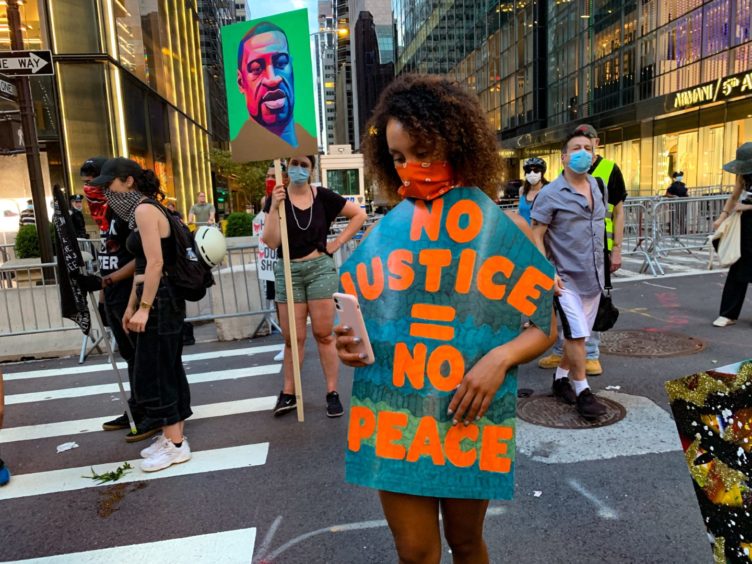 © Niyi Fote/via ZUMA Wire/Shutters
© Niyi Fote/via ZUMA Wire/Shutters